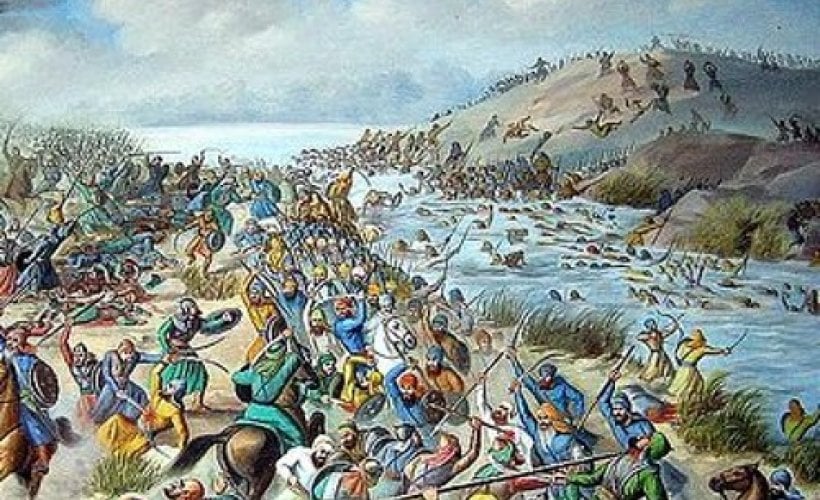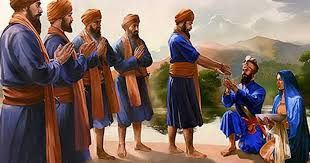Discover the legacy of Arur Singh, a dedicated reformer and hero, martyred at Nankana Sahib in 1921. Learn about his journey and impact.
CHHOTA GHALLUGHARA, lit. minor holocaust or carnage, as distinguished from Vadda Ghallughara (q.v.) or major massacre, is how Sikh chronicles refer to a bloody action during the severe campaign of persecution launched by the Mughal government at Lahore against the Sikhs in 1746. Early in that year, Jaspat Rai, the faiydar of Eminabad, 55 km north of Lahore, was killed in an encounter with a roving band of Sikhs. Jaspat Rai\'s brother, Lakhpat Rai, who was a diwan or revenue minister at Lahore, vowed revenge declaring that he would not put on his head dress nor claim himself to be a Khatri, to which caste he belonged, until he had scourged the entire Sikh Panth out of existence.
FATEH SINGH (d. 1716), an army commander under Banda Singh Bahadur, who was appointed administrator of Samana after the town was occupied by the Sikhs in 1709. Fateh Singh participated in several of Banda Singh`s battles against the Mughal rulers. In the battle of Sirhind fought at the nearby village of Chappar Chiri, Fateh Singh killed Nawab Wazir Khan, the faujdar of Sirhind. He was taken prisoner at Lohgarh in December 1710 and, after several years in jail, was executed in Delhi in June 1716 along with Banda Singh and his other companions.
Discover the intriguing history of Jaspat Rai, a pivotal figure in Punjab's past during Mughal rule, and his dramatic clash with Sikhs in 1746.
Explore the legacy of Mali Singh, who left Wazir Khan's service to join Banda Singh Bahadur, playing a key role in his campaigns until his execution in Delhi.
Explore the meaning of 'Panth'—a way of life and religious path in Sikhism, embodying the collective faith and commitment of the Sikh community.
Explore the riveting Sikh history from Guru Nanak's time to 18th-century Punjab power dynamics in Ratan Singh Bharigu's Prachin Panth Prakash.
Discover the legacy of Rai Singh, a key leader of the Karorsinghia misi, known for avenging sacrilege and shaping Sikh history in the 18th century.
Discover 'Raj Karega Khalsa,' the Sikh anthem symbolizing sovereignty and spiritual devotion, recited in unison at every religious Sikh service.
- 1
- 2





